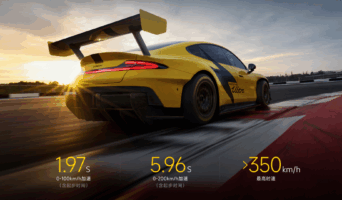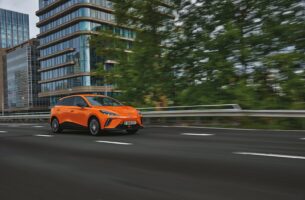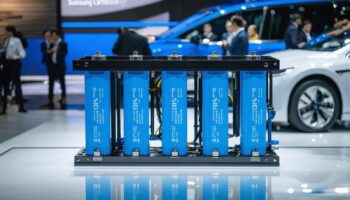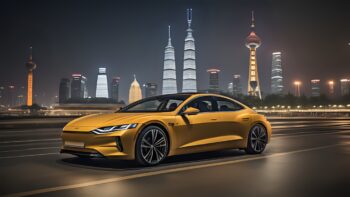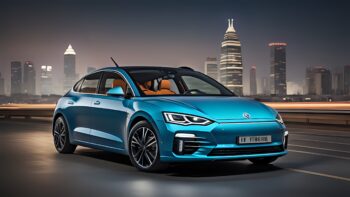VW Boss wants cross industry cooperation for the electric transition

Member of the Board at Volkswagen Group | CEO of Volkswagen Brand | Head of Brand Group Core
(Image – Thomas Schäfer / CEO of VW Brand )
“We need to penetrate into lower price segments” – how the electric transition should succeed.
The electric car industry in Europe is stagnating. “We are currently experiencing a dip,” said Thomas Schäfer, CEO of Volkswagen Passenger Cars, at the Swiss Economic Forum (SEF) in Interlaken. To overcome this, cross-sector collaboration is needed to keep the automotive industry in Europe competitive.
“The electric transition can only succeed together,” said Schäfer. The electric car industry in Europe is currently suffering from high electricity prices due to the war in Ukraine and a heterogeneous support landscape. All players, including the industry, politics, and society, must now join forces to achieve the transition.
Hybrid cars have no future.
This includes the complete transition from combustion engines and hybrid models to electric drives. Although it has proven correct for VW to rely on hybrid models in the medium term, this can only be a transitional solution: “This is an expensive strategy, and it must come to an end,” said the VW Passenger Cars chief.
Mass small EV-Models are coming
To manage the transition, VW is also focusing on smaller electric car models, whose importance Schäfer emphasized. VW plans to launch the “ID.2all” model for around 25,000 euros before the end of 2025. Even cheaper models, around 20,000 euros, are expected to follow in 2027.
“We need to penetrate deeper price segments,” Schäfer stressed. Only then can VW reach the broad mass. To make a profit on these affordable models, they need to be produced in large quantities.
VW has the necessary capacities, Schäfer explained, referring to the company’s own battery cell factories in Europe and Canada.
The idea that electric cars do not require sacrifices, but are safe and can cover long distances, has meanwhile taken root in people’s minds: “We have done our homework there.”
Volkswagen ID.2all
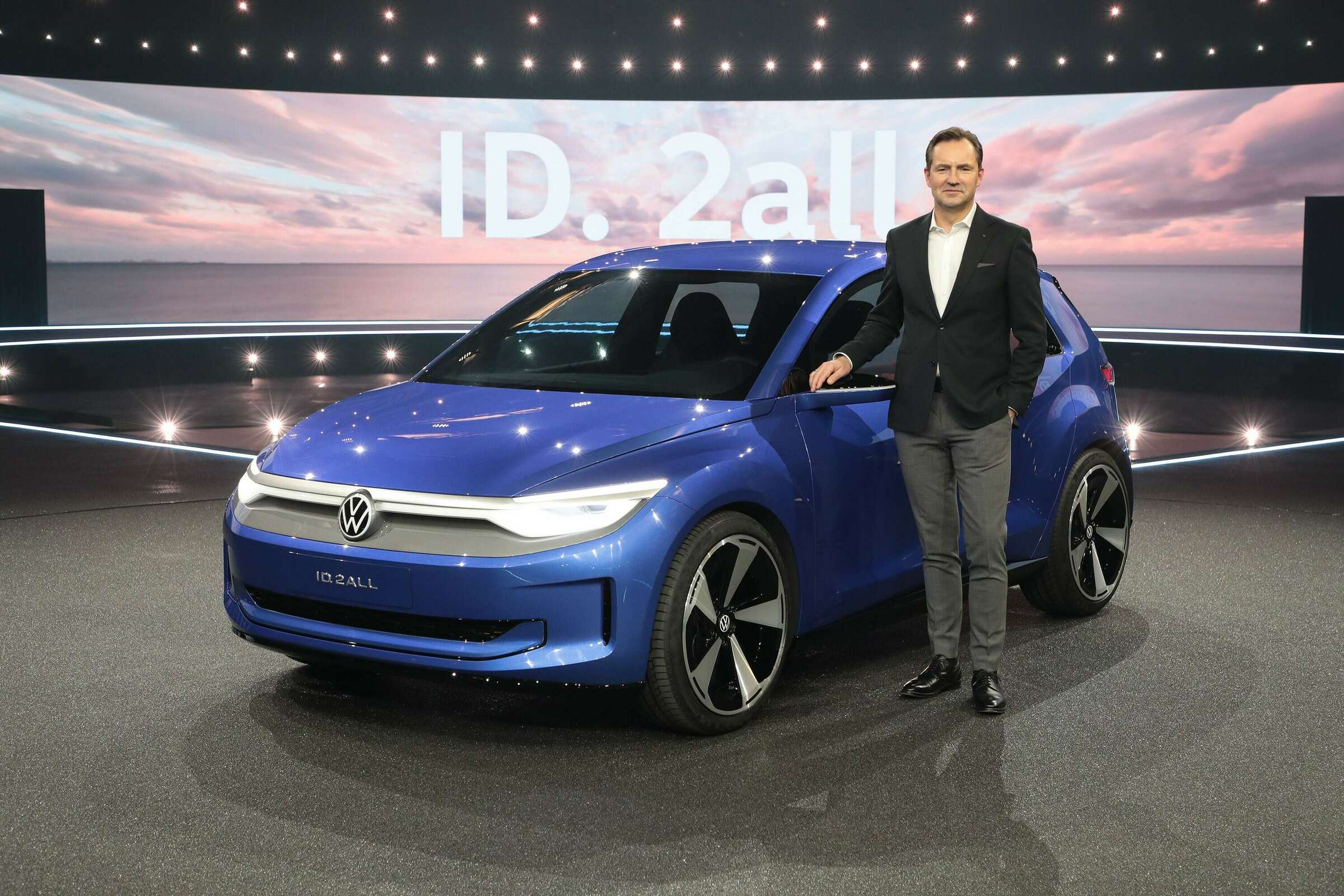
(Image – Thomas Schäfer – CEO of the Volkswagen brand. With show car ID. 2all – Volkswagen AG)
Further infrastructure expansion needed
However, for customers to switch to electric, more stability in the power supply and better infrastructure are needed, emphasized the VW manager. Overall, though, we are “on the right track.”
Schäfer also called for the commitment of everyone—companies and politics—to keep Europe’s industrial base competitive. VW, for its part, will remain loyal to the old continent, he emphasized.
“We must continue to stay here and manufacture our own battery cells. We can’t just hit pause; we must drive innovation and remain technology leaders,” said Schäfer.
By 2030, VW aims for electric cars to comprise 70 percent of its market share in Europe.
Unlike other automakers, VW intends to maintain its set goals for electric cars: by 2030, at least 70 percent of sales in Europe for the VW core brand will be purely electric cars, with more than 50 percent in the USA and China.
To this end, VW has electrified most of its model range, from compact cars the size of the Golf to SUV’s, sedans, station wagons, and even electric minibuses. By 2027, VW plans to bring eleven more electric models to the market.
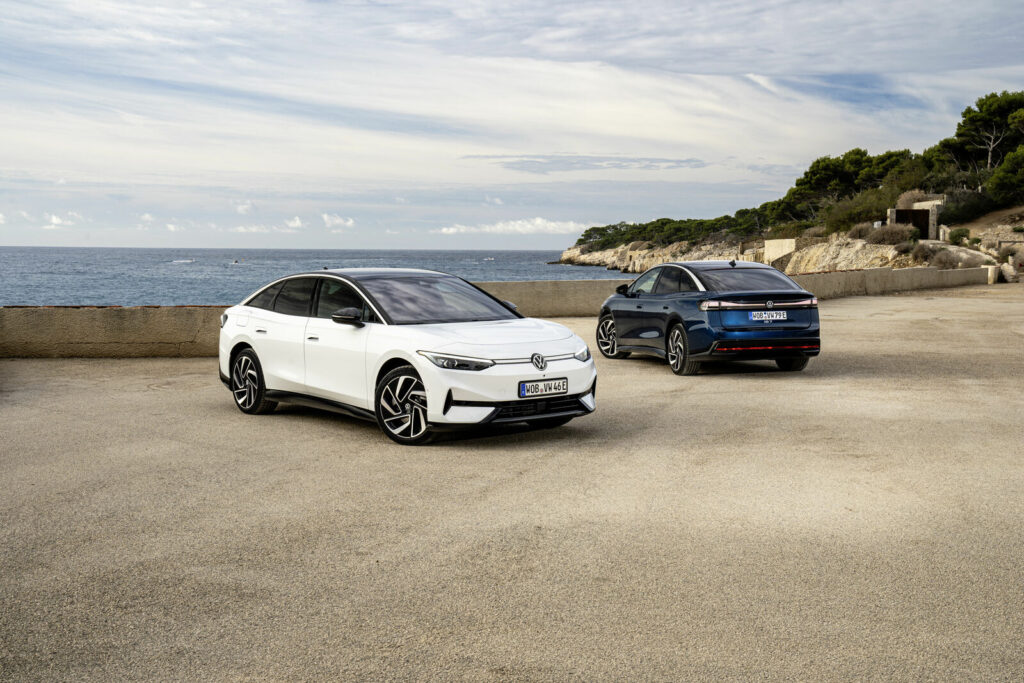
(Image – Volkswagen ID.7 – Volkswagen Newsroom)
